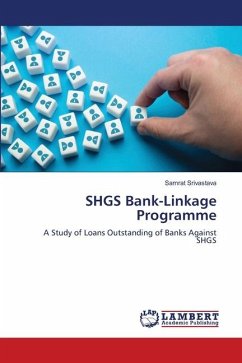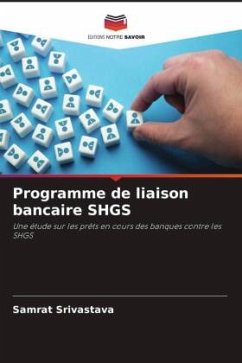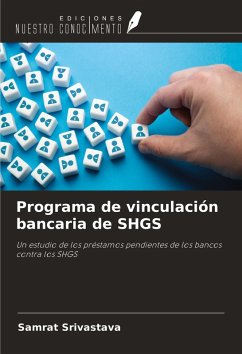
SHGS Bank-Linkage Programme
A Study of Loans Outstanding of Banks Against SHGS
Versandkostenfrei!
Versandfertig in 6-10 Tagen
29,99 €
inkl. MwSt.

PAYBACK Punkte
15 °P sammeln!
Socio-economic empowerment has been considered instrumental for holistic development. Women's empowerment is obviously essential for raising their socio-economic status in the society. Recently, women's empowerment has acquired an important place in government policy, non-government advocacy and academic research.There has been a paradigm shift in development and governance. Democratic decentralization, partnership with NGO's, empowering community based organizations, participatory development, sustainable growth and equity etc. have proved to be instrumental in people participation in develop...
Socio-economic empowerment has been considered instrumental for holistic development. Women's empowerment is obviously essential for raising their socio-economic status in the society. Recently, women's empowerment has acquired an important place in government policy, non-government advocacy and academic research.There has been a paradigm shift in development and governance. Democratic decentralization, partnership with NGO's, empowering community based organizations, participatory development, sustainable growth and equity etc. have proved to be instrumental in people participation in development and governance as well as their empowerment. The models of micro-finance were evolved in Bangladesh, Indonesia, Philippines, Sri Lanka etc. and were adopted in India too. Financing through SHG's has been considered instrumental in people's empowerment, mobilizing thrift and extending credit. The concept of micro-finance in India was introduced sometimes in 1985, however, since 1996 it was widely accepted and implemented.














